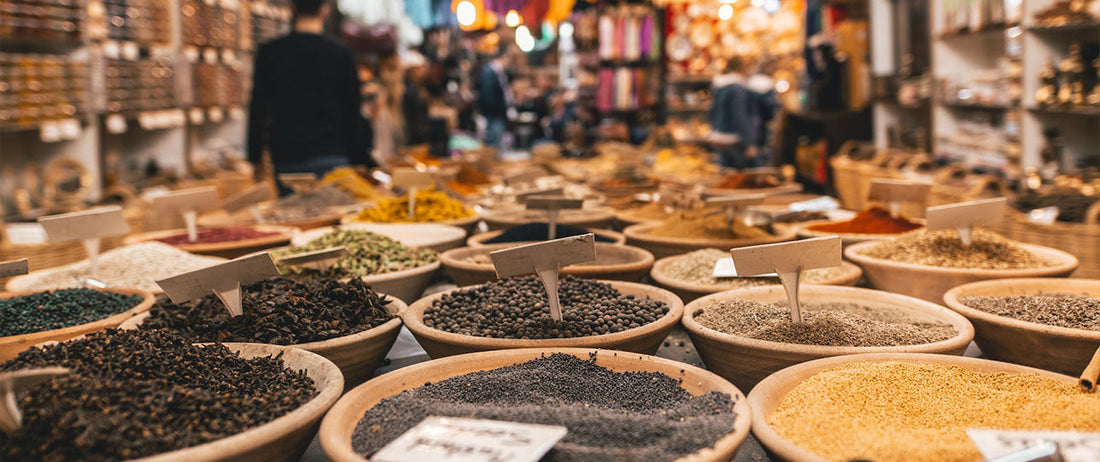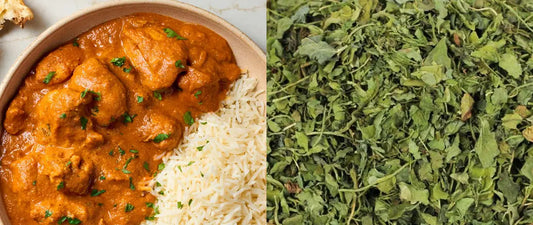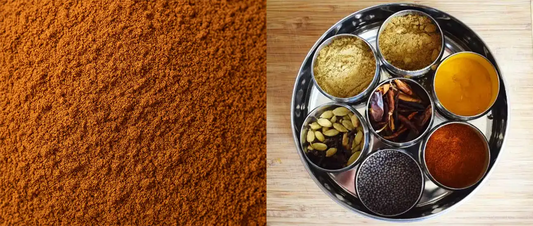
10 Must-Have Indian Spices for Your Kitchen
Table of Contents
- 1. Cumin: A Must-Have Spice in Indian Cooking
- 2. Coriander: The Perfect Pairing for Cumin
- 3. Turmeric: A Colourful and Healthy Spice
- 4. Cardamom: The King of Spices
- 5. Cinnamon: A Versatile Spice for Indian Dishes
- 6. Mustard Seeds: The Tiny Spice with a Big Impact
- 7. Fenugreek: A Bitter and Nutritious Spice
- 8. Red Chilli Powder: The Spicy Essential
- 9. Garam Masala: The Blend of Spices
- 10. Fennel Seeds: The Anise-like Spice
Spices are an essential part of Indian cooking, providing flavour, aroma, and colour to a range of dishes. With a long history of spice cultivation and trade, India boasts a vast array of spices that are used in various cuisines around the world. In this article, we'll explore the most important spices needed in Indian cooking, their history, and how they can be used to create authentic Indian dishes.
Cumin: A Must-Have Spice in Indian Cooking
Cumin is an important spice in Indian cuisine, adding a warm, earthy flavour to a range of dishes, from curries and stews to soups and salads. This spice has a long history in India, dating back to ancient times when it was used for its medicinal properties. Cumin is a rich source of antioxidants and can help aid digestion, making it a popular choice in many households. It is also one of the main ingredients in garam masala, a blend of spices commonly used in Indian cooking.
Examples of popular dishes with cumin:
- Aloo Gobi (potato and cauliflower curry)
- Chana Masala (spicy chickpea curry)
- Tandoori Chicken (marinated grilled chicken)

Read more: What Are Cumin Seeds (Jeera)? Everything You Need to Know.
Coriander: The Perfect Pairing for Cumin
Coriander is another essential spice in Indian cooking, often paired with cumin to create a balanced and complex flavour profile. This spice is derived from the dried seeds of the coriander plant and has a sweet, citrusy flavour that pairs well with cumin. Coriander is often used in marinades, chutneys, and curries, and is also an essential ingredient in garam masala.
Examples of popular dishes with coriander:
- Mint-Coriander Chutney (herb condiment)
- Chicken Tikka Masala (spiced tomato-based chicken curry)
- Dhania Paneer (coriander-flavoured paneer cheese)
Turmeric: A Colourful and Healthy Spice
Turmeric is a bright yellow spice that is widely used in Indian cooking, providing a range of health benefits as well as a distinctive flavour. This spice is derived from the root of the turmeric plant and has a warm, slightly bitter taste. Turmeric is known for its anti-inflammatory and antioxidant properties, making it a popular choice in many Indian households. It is commonly used in curries, soups, and stews and can also be used to add colour to rice dishes and chutneys.
Examples of popular dishes with turmeric:
- Yellow Dal Tadka (lentil soup)
- Turmeric Rice (flavoured rice)
- Chicken Curry (turmeric-based chicken curry)

Cardamom: The King of Spices
Cardamom is a highly prized spice in Indian cooking, often referred to as the "queen of spices" or the "king of spices". This spice has a sweet, floral flavour and is commonly used in both sweet and savoury dishes, from desserts to curries. Cardamom is also an essential ingredient in chai tea, providing a warm, aromatic flavour. This spice has a long history in India, dating back to ancient times when it was used for its medicinal properties.
Examples of popular dishes with cardamom:

Read more: What Is Cardamom? Everything You Need to Know.
Cinnamon: A Versatile Spice for Indian Dishes
Cinnamon is a versatile spice that is used in a range of cuisines, including Indian cooking. This spice is derived from the bark of the cinnamon tree and has a sweet, warm flavour that pairs well with other spices like cumin and coriander. Cinnamon is commonly used in biryanis, pulao, and other rice dishes, as well as in curries and desserts.
Examples of popular dishes with cinnamon:
- Shahi Tukda (cinnamon-flavoured bread pudding)
- Cinnamon-Sugar Lassi (spiced yogurt drink)
- Cinnamon Rice Pudding (dessert)

Mustard Seeds: The Tiny Spice with a Big Impact
Mustard seeds are a small but mighty spice in Indian cooking, adding a bold and pungent flavour to dishes. This spice is derived from the seeds of the mustard plant and comes in black, brown, and yellow varieties. Mustard seeds are commonly used in pickles, chutneys, and curries, and can also be used to add a kick to marinades and salad dressings.
Examples of popular dishes with mustard seeds:
- Achari Paneer (spicy paneer cheese)
- Sarson Ka Saag (spiced mustard greens)
- Aloo Methi (potatoes with fenugreek leaves and mustard seeds)

Fenugreek: A Bitter and Nutritious Spice
Fenugreek is a bitter spice that is commonly used in Indian cooking for its unique flavour and numerous health benefits. This spice is derived from the seeds of the fenugreek plant and has a slightly sweet and nutty taste. Fenugreek is known for its ability to aid digestion, lower blood sugar levels, and boost milk production in nursing mothers. It is commonly used in curries, stews, and lentil dishes.
Examples of popular dishes with fenugreek:
- Methi Chicken (chicken curry with fenugreek leaves)
- Methi Paratha (fenugreek-flavoured flatbread)
- Aloo Methi Sabzi (potatoes with fenugreek leaves)

Red Chilli Powder: The Spicy Essential
Red chilli powder is a must-have spice in Indian cooking, providing a spicy kick to a range of dishes. This spice is derived from ground chilli peppers and comes in varying levels of heat, from mild to extremely hot. Chilli powder is commonly used in curries, marinades, and spice blends, and can also be used to add heat to soups, stews, and chilli.
Examples of popular dishes with chilli powder:
- Chicken Vindaloo (spicy curry with vinegar and chili)
- Rajma Masala (spicy kidney bean curry)
- Sambar (spicy lentil and vegetable soup)

Garam Masala: The Blend of Spices
Garam masala is a blend of spices commonly used in Indian cooking, providing a complex and warming flavour to dishes. The ingredients in garam masala can vary depending on the region and the recipe, but typically include cumin, coriander, cardamom, cinnamon, cloves, and black pepper. This spice blend is often added towards the end of cooking to add depth and complexity to curries, stews, and rice dishes.
Examples of popular dishes with garam masala:
- Chicken tikka masala (Grilled chicken in a spiced tomato-based sauce)
- Chana masala (Chickpea curry)
- Aloo gobi (Potato and cauliflower curry)

Fennel Seeds: The Anise-like Spice
Fennel seeds are a unique spice in Indian cooking, with a sweet, anise-like flavour that pairs well with fish and vegetables. This spice is derived from the dried seeds of the fennel plant and is often used in spice blends, such as panch phoron. Fennel seeds can also be used to add flavour to chutneys, pickles, and bread.
Examples of popular dishes with fennel seeds:
- Aloo palak (Potato and spinach curry with fennel seeds)
- Rogan josh (Lamb curry with fennel seeds)
- Jeera rice (Cumin-flavored rice with fennel seeds)

Conclusion
Spices are an essential part of Indian cooking, providing flavour, aroma, and colour to a range of dishes. Cumin, coriander, turmeric, cardamom, and cinnamon are some of the most important spices in Indian cuisine, each providing a unique flavour profile and range of health benefits. By incorporating these spices into your cooking, you can create authentic and delicious Indian dishes that are sure to impress.



1 comment
It provides insightful information about the flavors and numerous applications of Indian spices in cuisine, deftly outlining the top ten essential spices. This website offers crucial knowledge to improve your cooking, regardless of your experience level with Indian cuisine. All in all, a must-read article.